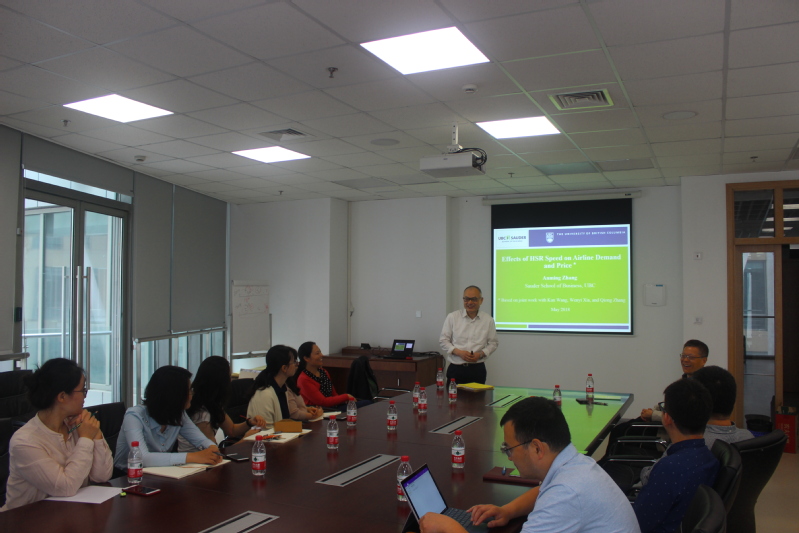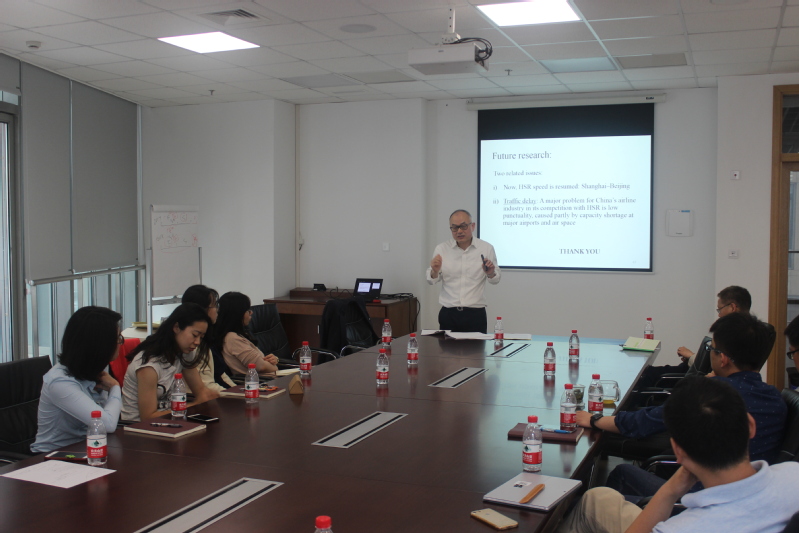Dr. Anming Zhang, professor of Sauder School of Business of University of British Columbia, visited School of Entrepreneurship and Management of ShanghaiTech University and delivered a lecture, “Effects of High-Speed Rail Speed on Airline Demand and Price: Theoretical Analysis and Empirical Evidence from a Natural Experiment”, to faculty and students on May 22.
When both high-speed rail (HSR) and airlines serve the same route of travel, the two kinds of services are substitutable with each other to a certain degree. If HSR speed changes, how will it impact the traffic volumes and prices of airline services? In his lecture, Professor Zhang discusses two countervailing effects of HSR speed on airlines, namely the “travel time” effect and the “safety” effect: while increasing HSR speed reduces HSR travel time, it may bring about a safety concern. To empirically test these effects, Professor Zhang and his team used a rare natural experiment, i.e., a fatal rear-ending HSR accident on July 23, 2011, which triggered the nationwide decision to slow HSR speed for 498 pairs of train routes in China. The robust results show that HSR speed reduction raises both airline traffic and price, which suggested the dominance of travel-time effect. The HSR speed effect was empirically stronger for relatively-short-haul routes where the airline and HSR services were more substitutable.
Professor Anming Zhang, an internationally renowned specialist in the fields of operations and Logistics, is a professor at Sauder School of Business, University of British Columbia (UBC). He holds Vancouver International Airport Authority Chair Professor in Air Transportation. He served as the Head of the Operations and Logistics Division, Sauder School of Business (2003-2005), and as the Director of UBC’s Centre for Transport Studies (2003-2004). He had been the Vice President (Academic & Program) for the World Air Transport Research Society (ATRS) between 2006 and 2017. Dr. Zhang is the recipient of the “Yokohama Special Prize for Outstanding Young Researcher” awarded at the 7th World Conference on Transportation Research (WCTR) in Sydney, Australia in 1995, and of the “WCTR-Society Prize”, awarded to the overall best paper of the 8th WCTR in Antwerp, Belgium, in 1998. In June 2014, he won the “Best Overall Paper Prize” at the annual ITEA (International Transport Economics Association) Conference on Transportation Economics, Toulouse School of Economics, France.






